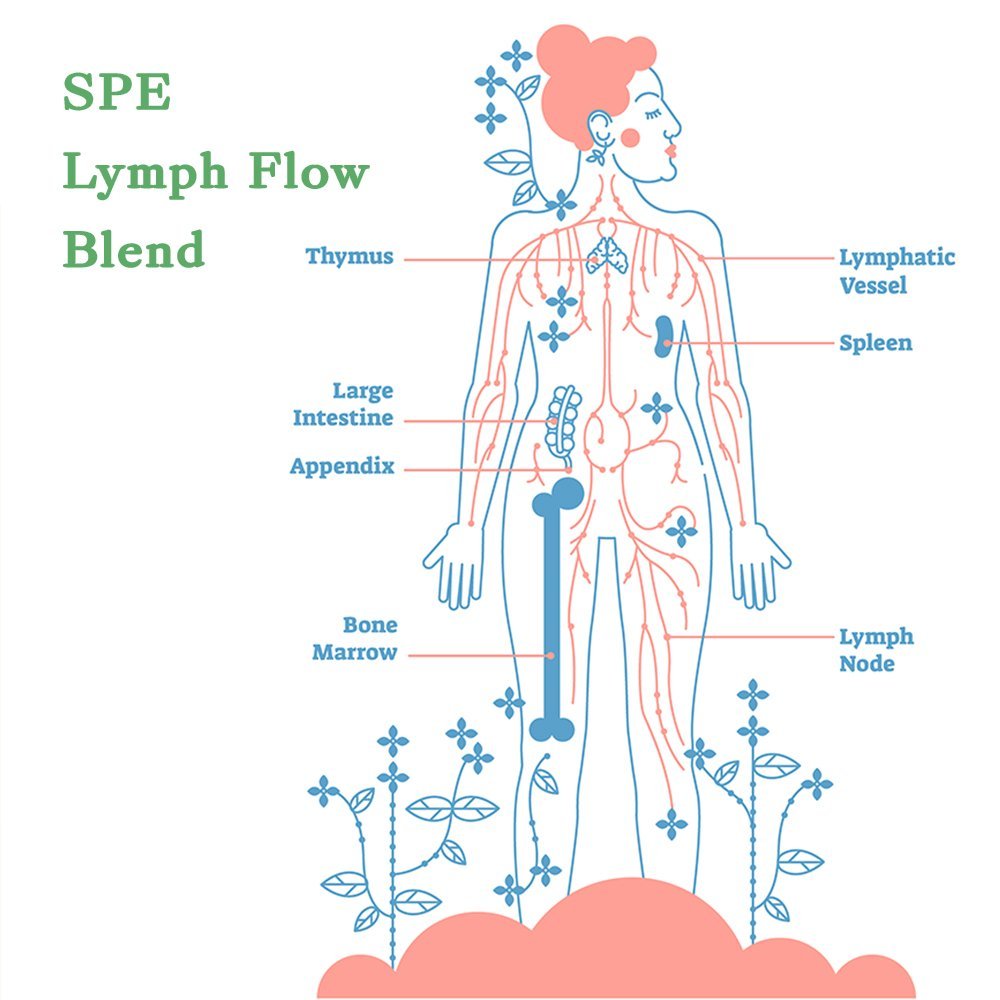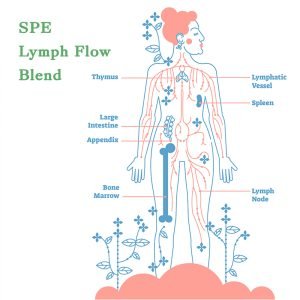Glyphosate found in Roundup weed killer is a extremely dangerous herbicide and is now utterly pervasive throughout the food supply. One study has found it in significant qualities in breast milk. Glyphosate causes chromosomal damage, and so, is carcinogenic. It has been clearly shown to increase the risk of non-Hodgkin’s lymphoma.
There are many discussions on the web about this issue. Here is one of them that is brief and concise.
Here is another video by a naturopath discussing a study concerning the reversal of the effects of glyphosate.
One of the ways glyphosate causes damage in the body is by destroying the body’s microbiome (population of probiotic bacteria). It has been found that some toxic herbicides destroy the soil’s microbiome, in part, by causing mitochondrial damage to the soil organisms. If it causes mitochondrial damage in these organisms, one has to assume it has the potential to do the same in humans.
The cell is the structural and functional unit of all known living organisms. It is the smallest unit of any organism that is classified as living, plant or animal, and is often referred to as “the building block of life.” Most vital functions of an organism occur within its cells, and all cells contain the hereditary information necessary for regulating cellular functions, and for transmitting information to the next generation of cells.
The human body is constructed of 50 to 100 trillion cells. The word cell comes from the Latin cellula, meaning small room. Each cell is surrounded by its cell membrane and contains a variety of functional components called organelles.
One of these organelles is called the mitochondria. The mitochondria is the powerhouse of the cell. It produces the energy required for support cellular metabolism, movement (e.g., blood cells), production of secretions (e.g., hormones and antibodies), communication with other cells and cellular reproduction.
The mitochondria transforms carbohydrates and fats that we consume into energy usable by the cells that contain them. Their number varies depending upon the cell’s function and total energy requirements. There may be as few as one or as many as thousands of mitochondria within a single cell.
While we generally think of all organs such as the heart, stomach and kidneys propelling the various vital functions of the body, every action of the body actually originates in the cells of which these organs are actually composed.
Mitochondrial dysfunction, including decreased oxidative capacity and increased oxidative damage, contributes substantially to biological aging.
Lacking sufficient energy, cells become disorganized, resulting in illness, aging and even death. Thus, cellular energy production is perhaps the most crucial and fundamental of all body activities. At the cellular level, fatigue is the outcome of inefficient cellular energy-production systems, largely associated with the mitochondria.
Lab studies have shown that glyphosate-based herbicides can damage mitochondrial DNA in human lung and liver cells. The herbicide causes the collapse of mitochondrial membranes, which signal the cells to self-destruct.
In upcoming posts, I will be discussing strategies for countering the effects of glyphosate in the body, including nutrients that support healthy mitochondrial function.
Lymphatic System

Draining the lymphatic system is an important component of a protocol for detoxifying the body from glyphosate.
The lymphatic system, like the cardiovascular system, consists of a network of vessels which act as a conduit for body fluids. The lymph vessels transport excess, waste-charged fluid away from the intercellular spaces and return it to the bloodstream. Each body cell is bathed in fluid made of materials derived from blood plasma and other blood elements which diffuse through the capillary walls. The fluid acts as a go-between medium for the transfer of vital materials from the blood to the cells, and for cellular debris away from the intercellular environment into the blood. Since the blood doesn’t come into direct contact with the cells (except in the spleen), one of the main functions of blood is to supply and renew lymph to all body tissues. Thus, the blood feeds the lymph, and the lymph feeds the cells. To appreciate the importance of lymph, one should consider that the body contains 3-times more lymph than blood.
E.M. Downing, D.O. writes regarding the lymph: “The immense body of fluid constitutes a medium of exchange so universal that man has been described, not inaptly, as an aquatic animal. Every cell is bathed in lymph. Every cell depends upon the lymph for nourishment. Every cell is afforded drainage by means of the lymph. The lymph performs import and export duties; it carries on a commerce with every other tissue.”
Any lymph vessel which drains an organ or body region always passes through lymph nodes. The nodes act both as filtration stations and storage sites for various immune cells, including T-cell and B-cell lymphocytes, plasma cells and phagocytes which destroy viruses, bacteria, harmful protein fragments and other anti- gens. The filtration of toxins, the gathering of “combat cells” and subsequent immunological reactions result in the tenderness and enlargement of the nodes in many disease states.
Drainage of the intercellular fluids is one of the most crucial of all body functions, and the lymph system is the sewer system that effects it. Inefficient drainage results in the accrual of dead and dying cells and metabolic toxins in the intercellular environment. Such an uncollected “garbage heap” tends to erode the protective barriers Nature has built around the cells. Once these safeguards are neutralized, toxic debris can gain access to, and poi- son, the bloodstream.
George Weger, M.D. writes: “Imperfect drainage throughout the organism is but another form of constipation…Why do diseases occur in the first place? Lack of drainage. What was undrained? The veins, capillaries, lymph channels, the cells themselves.”
Surgeon A.G. Walmsley, M.D. remarks regarding the link between imperfect drainage and disease: “If you want to see the object lesson, make a few post mortems in cancer of the stomach, and associated parts, and observe the lymph blockage.”
The lymphatic system is the body’s “sewer system” that not only drains toxins away from the cells, but also serves as a storage area for many of these toxins.
In this modern era, in which food, water and air have become chemical soups, the importance of draining the lymphatic system should not be ignored.
The SPE Lymph-Flow Blend is not a difficult blend to prepare. Instructions to do so can be found in the member zone.
Try not be just an observer of knowledge. Instead move from learning to practical application. Developing self-sufficiency regarding personal health is one of the most important objectives one can aspire to, especially in this modern era of toxicity, stress, high expense and concerted deception.
Recommended Resources
-
Lymphatic Drainage Manual Part 1
$25.00 -
SPE Lymph-Flow Blend
FREE -
Vital Chi Skin Brushing System – The Quick-Start Program
Price range: $12.95 through $64.95










